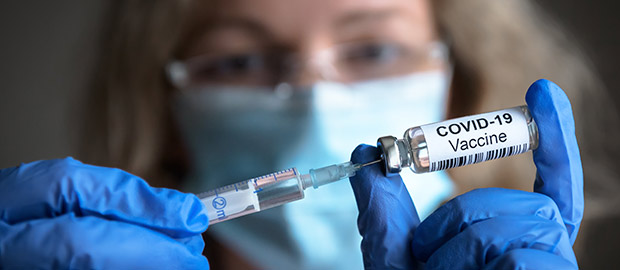Your weekly digest of policy news, funding competitions, and calls for evidence.
What’s been in the news?
Catapults should not be held back
The Parliamentary Science and Technology Committee has said that the UK’s innovation system has all the necessary components to be successful, ‘but lacks the necessary scale and collaboration to fully realise economic benefits for the UK.’ The comment made by Lord Patel, Chair of the Science and Technology Committee, came as it released the findings of an inquiry: Catapults: Bridging the gap between research and industry examining the contribution of the so called Catapults to deliver the UK’s Research and Development Roadmap.
The UK’s innovation ‘Catapults’ are independent, not-for-profit technology and innovation centres. They are intended to foster collaboration between research organisations in the public and private sector, in order to assist in turning innovative ideas into commercial products. The first Catapults were established during 2011 by the Technology Strategy Board. There are nine Catapults operating in various sectors, they form the ‘Catapult Network’ and are overseen by Innovate UK.
Having launched a short inquiry during November 2020, and received written and oral evidence from the Catapults during December 2020 and January 2021, the Science and Technology Committee said that; ‘The Government needs to provide more detail about how it will deliver its R&D Roadmap, including how it will attract substantial private sector investment to meet its target of 2.4% of GDP by 2027’. The Committee added that there is ‘insufficient collaboration between organisations and insufficient scale to deliver the required levels [of] innovation and commercial success’.
For more on this topic, see here: https://www.soci.org/news/2021/2/catapults-should-not-be-held-back
Competition addresses challenges in agri-food sector
UKRI and the UK Government’s Department for the Environment Food & Rural Affairs (Defra), have announced funding for a Farming Innovation Pathways research and development competition, which will be open to ideas addressing challenges across the agri-food sector. Priorities will include robotics and automation, and novel food production systems such as vertical farming.
The competition will be delivered by UKRI’s Industrial Strategy Challenge Fund Transforming Food Production, aimed at developing new and existing farm-focused innovations. Funding, which will come from Defra’s Future Farming & Countryside Programme, will see £5 million made available for feasibility projects, while £7 million will be available for industrial research. The projects will bring together farmers, growers and business enabling them to develop novel technological solutions.
UKRI said that Farming Innovation Pathways will ensure practical translation of leading research in agriculture, which can directly benefit farmers and support them as they address the challenges of productivity, sustainability and net-zero emissions in UK farming.
For more information on this topic see here:
https://www.soci.org/news/2021/2/competition-addresses-challenges-in-agri-food-sector
https://www.ukri.org/news/ukri-and-defra-to-launch-farming-innovation-pathways-competition/
Partnership with CureVac and support for technicians
The UK Government has established a new partnership with vaccine manufacturer CureVac in preparation for any Covid-19 variants that require rapid development of new vaccines.
The process followed by CureVac in monitoring for any required changes in the genomics of the vaccine is similar to that followed for the flu vaccines each year – updated and accelerated using the newly-proven mRNA technology that can be reformulated against variants more quickly than older and more traditional vaccine technologies. This technology is already being used in the Pfizer-BioNTech and Moderna vaccines which have shown to work well against the dominant variants in the UK.
The government is establishing an expert advisory group to identify the variants that the UK could need vaccines against, with an initial order of 50 million doses of the new vaccine to be delivered if required. The total UK government investment into manufacturing a successful vaccine is now at £300 million.
In similar news, UKRI has signed the Technician Commitment – a university and research institution initiative to ensure technicians are recognised for their essential role in research and innovation and ensure career development for technicians working in higher education and research.
UKRI has published an acion plan on how it will champion this. UKRI Chief Executive Professor Dame Ottoline Leyser said: ‘Technicians are crucial members of the research and innovation community. Beyond their diverse technical expertise, they inspire, teach and develop others. They have played vital roles on the frontline of the research and innovation community’s extraordinary response to the pandemic and they will be equally central in our efforts to build back better, fuelling an inclusive knowledge economy.’

The regulation of genetic technologies
DEFRA is seeking views on the legislation for GE organisms and breeding methods, following the UK leaving the EU.
Deadline: 17 March 2021
Further information can be found here.
Commercialising Quantum Technologies: feasibility studies round 2
UK registered businesses can apply for a share of up to £7 million for feasibility studies or market research projects. Projects must last from 12 to 18 months and must end by 31 July 2023.
Deadline: 10 March 2021
ISCF TFI: large collaborative R&D projects
UK registered business or RTOs can apply for a grant share of up to £8 million for R&D projects to improve the UK’s foundation industries. Projects must last between 12 and 24 months.
Deadline: 10 March 2021
African agriculture knowledge transfer partnerships (KTP): 2020 to 2021, round 5
UK registered higher or further education institutions, RTOs or Catapults can apply for a share of up to £2 million to fund an innovation project. Business partner must be registered in Ghana, Nigeria, Kenya or South Africa.
Deadline: 14 April 2021
Innovate UK Smart Grants January 2021
Opportunity for UK registered organisations to apply for a share of up to £25 million from Innovate UK for commercially viable R&D innovations. Projects can last between 6 to 36 months.
Deadline: 26 May 2021
You can find further details of the funding calls on the Government website




